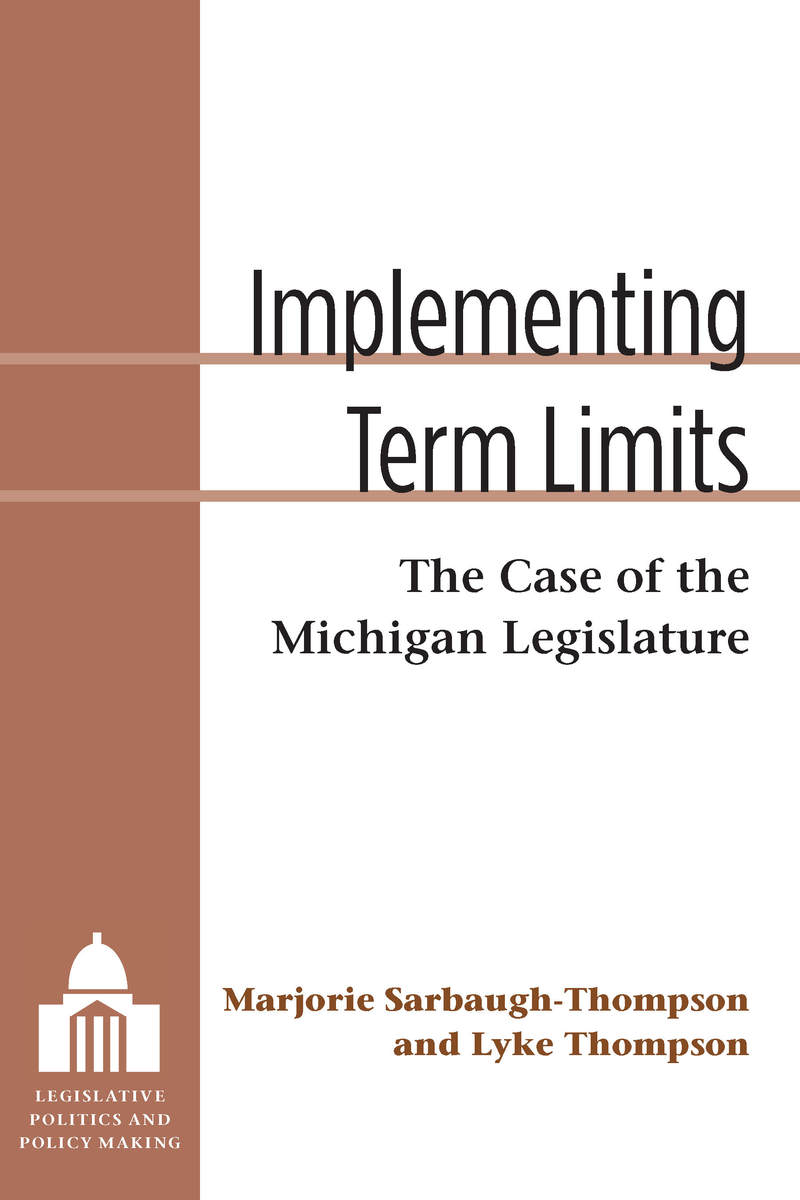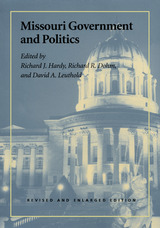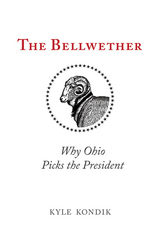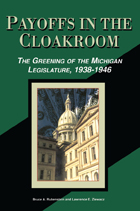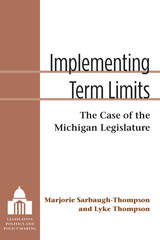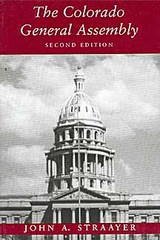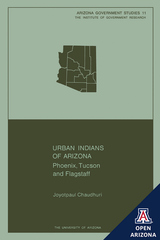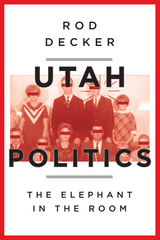Implementing Term Limits: The Case of the Michigan Legislature
University of Michigan Press, 2017
Cloth: 978-0-472-07342-9 | Paper: 978-0-472-05342-1 | eISBN: 978-0-472-12273-8 (standard)
Library of Congress Classification JK5875.S27 2017
Dewey Decimal Classification 328.773073
Cloth: 978-0-472-07342-9 | Paper: 978-0-472-05342-1 | eISBN: 978-0-472-12273-8 (standard)
Library of Congress Classification JK5875.S27 2017
Dewey Decimal Classification 328.773073
ABOUT THIS BOOK | AUTHOR BIOGRAPHY | REVIEWS | TOC | REQUEST ACCESSIBLE FILE
ABOUT THIS BOOK
Today, 70 percent of the American public supports reforms that would limit the number of terms a state legislator may serve, and the advocacy group U.S. Term Limits promotes this reform at all levels of government. But are advocates correct that term limits ensure citizens dedicated to the common good—rather than self-serving career politicians—run government? Or does the enforced high rate of turnover undermine the legislature’s ability to function?
In Implementing Term Limits, Marjorie Sarbaugh-Thompson and Lyke Thompson bring thirteen years of intensive research and 460 interviews to assess changes since Michigan’s implementation of term limits in 1993 and explore their implications. Paying special attention to term limits’ institutional effects, they also consider legislative representation, political accountability, and the role of the bureaucracy and interest groups in state legislatures.
Their thorough study suggests that legislators are less accessible to officials and that there is a larger gap between legislators and their voters. Moreover, legislators become much more politically ambitious after term limits and spend more time on political activities. The selection of top chamber leaders is complicated by newcomers’ lack of knowledge about and experience working with the leaders they elect before being sworn in. As a result, term limits in Michigan fail to deliver on many of the “good government” promises that appeal to citizens.
Implementing Term Limits makes a unique and valuable contribution to the debate over the best means by which to obtain truly democratic institutions.
In Implementing Term Limits, Marjorie Sarbaugh-Thompson and Lyke Thompson bring thirteen years of intensive research and 460 interviews to assess changes since Michigan’s implementation of term limits in 1993 and explore their implications. Paying special attention to term limits’ institutional effects, they also consider legislative representation, political accountability, and the role of the bureaucracy and interest groups in state legislatures.
Their thorough study suggests that legislators are less accessible to officials and that there is a larger gap between legislators and their voters. Moreover, legislators become much more politically ambitious after term limits and spend more time on political activities. The selection of top chamber leaders is complicated by newcomers’ lack of knowledge about and experience working with the leaders they elect before being sworn in. As a result, term limits in Michigan fail to deliver on many of the “good government” promises that appeal to citizens.
Implementing Term Limits makes a unique and valuable contribution to the debate over the best means by which to obtain truly democratic institutions.
See other books on: Case | Government accountability | Legislative Branch | Legislators | Representative government and representation
See other titles from University of Michigan Press
